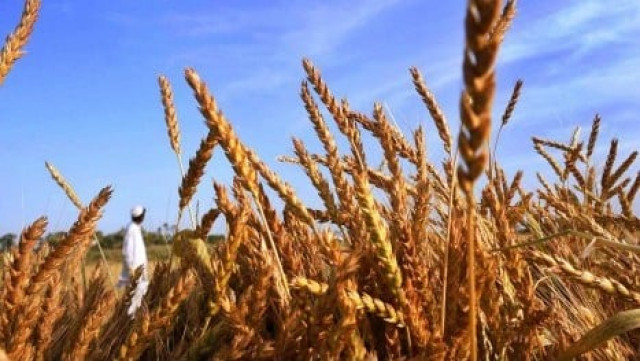Current rains to impact wheat crop positively
Targets fixed for current season estimated to be achieved

Agriculture experts, on Monday, said that the ongoing rains will positively impact all seasonal major and minor crops, fruits and vegetables.
The rains will be particularly beneficial for wheat, which is a major cash crop and a mega source of staple food in the country, they said.
“The rains will have a positive impact on wheat sown in rain-fed areas across the country as well as on oil seeds, including mustard and canola. It will act as a supplement for seed germination,” said Dr Imtiaz Ali Gopang, Food Security Commissioner.
The second rain of the current winter season will not only be beneficial for rain-fed areas but will also benefit the irrigated areas of the country, increasing the water level in mega storage resources and bridge the deficiency gap of water for irrigation, he added.
He expected that due to these rains’, the wheat sowing targets fixed for the current season will also be achieved. Sowing will gain further momentum in the rain-fed areas across the country, particularly in Punjab, Khyber-Pakhtunkhwa (KP) and Balochistan.
“Sindh and Punjab have also started suppling free seeds for flood-hit districts,” adding that “it will also revive agriculture activity in the affected areas and will help in achieving the sowing targets and help produce surplus output,” he said.
Highlighting the impact of the recent rains on different crops, the Chairman of the Pakistan Agriculture Research Council (PARC), Dr Ghulam Muhammad Ali said that “these rains are beneficial for wheat as the crop is in its germination stage”.
It will help to strengthen the health of the plant and enhance local output during the season, he said. “The rains will impact wheat sown in the Potohar region and other rain-fed areas in the country positively,” he said. “A large number of small-scale farmers cultivate different minor crops and seasonal vegetables in these areas, and these timely rains will help them increase output and enhance their farm income”.
As per details, in Punjab, wheat sowing on over 13.9% of the area has been completed as crop cultivation witnessed about 0.1% increase against the cultivation during the corresponding period of last year.
Published in The Express Tribune, November 15th, 2022.
Like Business on Facebook, follow @TribuneBiz on Twitter to stay informed and join in the conversation.


















COMMENTS
Comments are moderated and generally will be posted if they are on-topic and not abusive.
For more information, please see our Comments FAQ